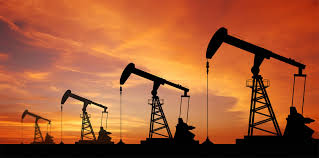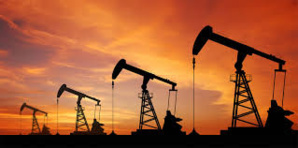Fears of regional conflict have bene prompted as tensions escalate over who owns a portion of the country's crude as an oil-rich province in the north of Iraq plans to vote in a referendum on Kurdish independence later this month.
Since the summer of 2014, when so-called Islamic State swept across parts of Iraq, Kurdish forces have been in complete control of the province of Kirkuk — as well as other disputed areas. The northern part of the country forms part of Kurdistan, the unofficial but centuries-old home of the Kurdish people in addition to being home to much of Iraq's oil. after American troops overthrew Saddam Hussein's Iraqi government in 2003, the Kurds began to believe it was near their grasp as they have long sought their own state.
the long-running dispute between Baghdad and the Kurdish capital of Erbil over who should claim the spoils is sharpening, even though during the past two years both Iraqi government troops and Kurdish militia forces have fought to drive ISIS out from most of the country.
With Prime Minister Haider al-Abadi describing the vote as "unconstitutional and illegitimate", the Sept. 25 referendum is vehemently opposed by Baghdad.
"Dangerous" and a violation of Iraq's constitution is how Turkish officials have described Kirkuk's decision to hold a referendum. Ankara appears to have considerable leverage over the area as it remains the only major outlet for Kurdish oil exports and holds close political and economic ties with the Kurdistan Regional Government.
To an already long-running dispute between Baghdad and Erbil over Kurdish oil exports and revenue sharing, the decision to hold a vote is a potential powder keg.
"The relationship between Baghdad and Erbil is the biggest challenge to oil, with the Kurds using this upcoming referendum as a bargaining chip," Renad Mansour, an Iraq expert at London-based think tank Chatham House, said.
"Do I foresee all out conflict? Probably not. The referendum is a bit of a bluff in that sense because the Kurds need the U.S. and the U.K. and a conflict would mean losing this lifeline. I wouldn't rule out skirmishes, but an all-out war is in no-one's best interests," Mansour added.
According to Iraqi Oil Minister Jabar Al-Luaibi, currently pumping 4.32 million barrels of oil a day, Iraq is the second largest OPEC producer.
While reportedly accounts for around a 10th of the nation's total production, he however conceded the government does not have reliable figures for shipments from the country's Kurdish region.
"In the current oil price environment, the economic foundations for independence look shaky."-Torbjorn Soltvedt, Principal Analyst for MENA at Verisk Maplecroft.
"Independent Kurdish oil exports are still a long way off covering what is a very large and expensive public sector. In the current oil price environment, the economic foundations for independence look shaky," Torbjorn Soltvedt, principal analyst for the Middle East and Northern Africa at risk consulting firm Verisk Maplecroft, said.
"It would be wrong to assume, however, that the issue of independence will be governed by economics alone. … In particular, legal challenges from Iraqi courts against independent (Kurdistan Regional Government) crude are still a significant restraint under the Kurdistan Region's current semi-autonomous status," he added.
Since it signed an oil agreement with the semiautonomous government in 2012, U.S. oil giant Chevron has been operating in the Kurdistan region of Iraq. By suggesting any oil firm operating in the northern region of the country without the approval of the central government could be blacklisted, Baghdad criticized the decision.
A Chevron spokesperson said that it "seeks to work constructively with all stakeholders in any country in which it operates (and) with regards to any referendum, it is a decision to be made by those directly involved."
(Source:www.cnbc.com)
Since the summer of 2014, when so-called Islamic State swept across parts of Iraq, Kurdish forces have been in complete control of the province of Kirkuk — as well as other disputed areas. The northern part of the country forms part of Kurdistan, the unofficial but centuries-old home of the Kurdish people in addition to being home to much of Iraq's oil. after American troops overthrew Saddam Hussein's Iraqi government in 2003, the Kurds began to believe it was near their grasp as they have long sought their own state.
the long-running dispute between Baghdad and the Kurdish capital of Erbil over who should claim the spoils is sharpening, even though during the past two years both Iraqi government troops and Kurdish militia forces have fought to drive ISIS out from most of the country.
With Prime Minister Haider al-Abadi describing the vote as "unconstitutional and illegitimate", the Sept. 25 referendum is vehemently opposed by Baghdad.
"Dangerous" and a violation of Iraq's constitution is how Turkish officials have described Kirkuk's decision to hold a referendum. Ankara appears to have considerable leverage over the area as it remains the only major outlet for Kurdish oil exports and holds close political and economic ties with the Kurdistan Regional Government.
To an already long-running dispute between Baghdad and Erbil over Kurdish oil exports and revenue sharing, the decision to hold a vote is a potential powder keg.
"The relationship between Baghdad and Erbil is the biggest challenge to oil, with the Kurds using this upcoming referendum as a bargaining chip," Renad Mansour, an Iraq expert at London-based think tank Chatham House, said.
"Do I foresee all out conflict? Probably not. The referendum is a bit of a bluff in that sense because the Kurds need the U.S. and the U.K. and a conflict would mean losing this lifeline. I wouldn't rule out skirmishes, but an all-out war is in no-one's best interests," Mansour added.
According to Iraqi Oil Minister Jabar Al-Luaibi, currently pumping 4.32 million barrels of oil a day, Iraq is the second largest OPEC producer.
While reportedly accounts for around a 10th of the nation's total production, he however conceded the government does not have reliable figures for shipments from the country's Kurdish region.
"In the current oil price environment, the economic foundations for independence look shaky."-Torbjorn Soltvedt, Principal Analyst for MENA at Verisk Maplecroft.
"Independent Kurdish oil exports are still a long way off covering what is a very large and expensive public sector. In the current oil price environment, the economic foundations for independence look shaky," Torbjorn Soltvedt, principal analyst for the Middle East and Northern Africa at risk consulting firm Verisk Maplecroft, said.
"It would be wrong to assume, however, that the issue of independence will be governed by economics alone. … In particular, legal challenges from Iraqi courts against independent (Kurdistan Regional Government) crude are still a significant restraint under the Kurdistan Region's current semi-autonomous status," he added.
Since it signed an oil agreement with the semiautonomous government in 2012, U.S. oil giant Chevron has been operating in the Kurdistan region of Iraq. By suggesting any oil firm operating in the northern region of the country without the approval of the central government could be blacklisted, Baghdad criticized the decision.
A Chevron spokesperson said that it "seeks to work constructively with all stakeholders in any country in which it operates (and) with regards to any referendum, it is a decision to be made by those directly involved."
(Source:www.cnbc.com)






